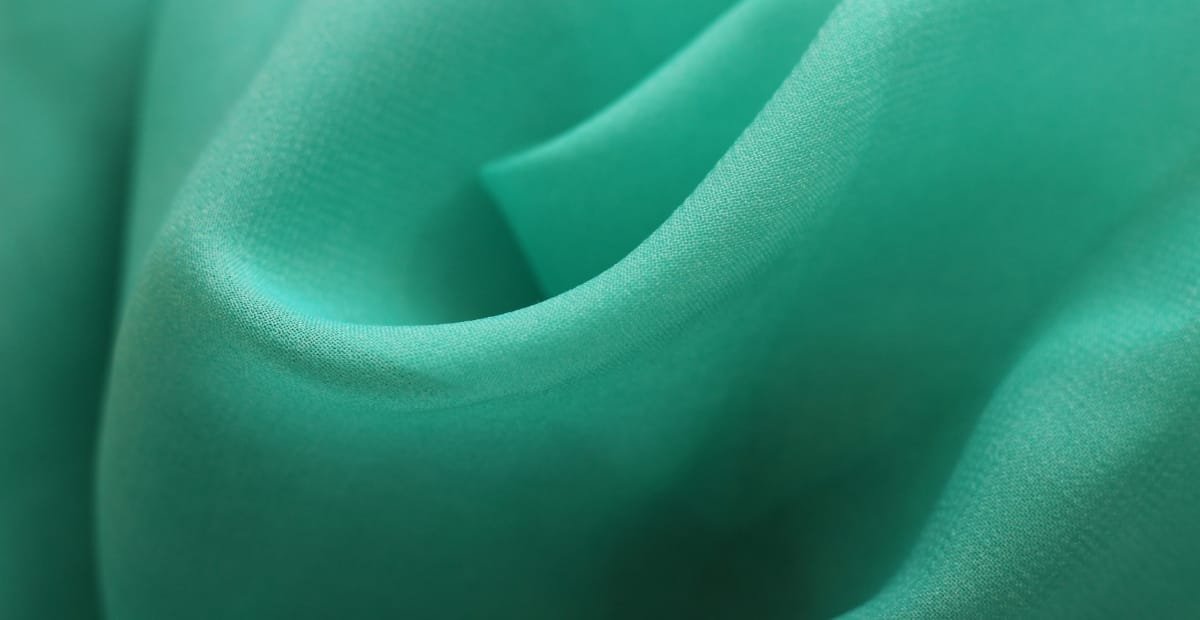Introduction
Polyester is now regarded as one of the most ubiquitous types of fabric in the world. You will find it in the clothing and sportswear industries, as well as in home decor and bedding. The fabric is durable, easy to maintain, affordable, and resistant to body odor and wrinkling. So long as these benefits exist, especially the affordability, it is no surprise it has become such a popular fabric. But the question some are still inclined to ask is, does polyester have a negative impact on skin health?is polyester bad for skin
This question often arises because polyester is a synthetic fabric which is a derivative of scientific Petroleum based fabric. Compared to the likes of cotton, silk and linen, polyester is less breathable and softer and unlike these natural fibers, it has a more potential of causing irritation, rashes,is polyester bad for skin excess sweating and acne. This also means that those with sensitive skin and certain medical conditions such as eczema, will have to be more careful.is polyester bad for skin
The next step is to investigate the impact of health on skin in relation to polyester, what polyester does in comparison to natural fibers, and the what documents and professionals in the field of skin health note polyester to be.
What Polyester Is: Synthetic Fabric Basics
Polyester is a synthetic fabric whose principle elements include ethylene glycol, and terephthalic acid. These compounds create long chain polymers that are spun then woven to create fabric. They polyester will then be treated to separate it from the other synthetic fibers created in the fabric manufacturing process.
The polyester fiber is noted to be:
- Robust: Strength in sustaining the pull, as well as resists gentle tumbling and other repeating mechanical actions.
- Economical: Also more affordable to manufacture, in comparison to natural fibers.
- Quick-Drying: Moisture stays on the outside and is not sucked up.
- Flexible: Combine with cotton, wool, or spandex for various applications.
Polyester is not the most breathable fabric, and does not wick moisture very well.is polyester bad for skin For most people, the lack of moisture wicking capability can be bikinis.is polyester bad for skin That is part of the reason the debate on is polyester bad for skin surfaces really helps the discourse.
Is Polyester Bad for Skin?
Polyester is not inherently dangerous or toxic. For most people, it poses no health risk when worn as clothing or used in bedding. However, some individuals may experience skin-related problems when exposed to polyester for extended periods.is polyester bad for skin
Pros of Polyester for Skin:
- Generally, tends to be safe with no detrimental health impacts.
- Mold and mildew resistant.
- Durable and able to withstand treatment.
Cons of Polyester for Skin:
- Insufficient ventilation can encourage the retention of heat and moisture.
- More likely to induce a rash, itch or acne on the skin for particularly sensitive people.
- Easily aggravates notable skin conditions such as eczema or dermatitis when there is tighter fitting.
To summarize, polyester itself does not pose a threat to skin,is polyester bad for skin but the way some people experience skin irritation depends on personal sensitivity and surrounding conditions.
Tips for Wearing Polyester

Choose High-Quality Polyester
Not all polyester is the same. Cheap polyester can feel rough and may cause itching.is polyester bad for skin Always choose high-quality fabrics with moisture-wicking technology,is polyester bad for skin. especially for sportswear and daily clothing.
Wear Polyester Blends Instead of 100% Polyester
Polyester blended with cotton, bamboo, or spandex feels softer and more breathable. These blends reduce irritation while keeping the fabric durable and wrinkle-resistant.
Avoid Polyester in Hot and Humid Weather
Since polyester traps heat and sweat, skip wearing it during extremely hot or humid days. Choose natural fabrics like cotton or linen for comfort in warmer seasons.
Wash Polyester Clothes Properly
Improper washing leaves detergent residues that may irritate skin. Always rinse thoroughly and avoid strong fabric softeners. Use mild detergents designed for sensitive skin.
Skin-Related Aspects
Polyester and Skin Sensitivity
For sensitive skin types, considering “Is polyester bad for skin” is a more loaded question. The blunt texture of polyester fibers and the lack of skin ventilation may cause skin irritation.is polyester bad for skin. A person suffering from eczema, psoriasis, or contact dermatitis for example, may experience polyester-induced flares.
Such irritations may lead to:
- The skin becoming increasingly sensitive during physical activity.
- Sweat-induced heat rashes in warmer temperatures.
- Increased redness and itching.
The skin does not react in the same way for every one. this is why it is safe to say that skin allergy victims should exercise caution whenever polyester is in question.is polyester bad for skin tactile irritation may be prevented using cotton or bamboo blends.
moisture wickingUnpleasant odor and heat rashes may also be attributed to rapid polyester clothing. Non-Absorbing or “breathable” polyester activewear is also specifically engineered to repel, rather than absorb, water. In activewear, this is what is called “moisture wicking” technology.
Breathability and Sweat Issues
Polyester does not breathe as well as natural fibers. It does not absorb water, and thus, sweat is left hanging on the skin. This, together with body heat, creates a warm, damp space conducive for bacterial growth.is polyester bad for skin
The effects are as follows:
- Excessive body odor resulting from the growth of odoriferous bacteria.
- Acne breakouts due to the sudden appearance of blocked pores.
- Irritation during hot, humid conditions.
To athletes, the concerns are even more dire. Even though sophisticated athletic apparel constructed from polyester offers “moisture-wicking technology,” most polyester fabrics do not, and thus, sweat is retained.
Polyester vs. Fabrics for Skin Health
The difference between polyester and natural fabrics of skin health and comfort is undeniable.
- Cotton: Lightweight, smooth, and absorbs moisture. Great for acne-prone skin.
- Bamboo: Lightweight, absorbent, and hypoallergenic.
- Linen: Great for hot weather, and very breathable.
- Silk: Gentle on sensitive skin, luxurious, and smooth.
Although durable and inexpensive, polyester can lead to long term discomfort for one’s skin. Those people frequently asking the question is polyester bad for skin, are often directed to these alternatives.
Polyester in Activewear and Sleepwear
Polyester dominates the activewear market due to its strength and stretchability. However, while undergoing workouts, the use of polyester can be problematic.is polyester bad for skin. The fabric can trap sweat, causing chafing, bad odors, and even breakouts. Furthermore, high-quality blends that are meant to wick moisture can still irritate overly sensitive skin.
In sleep and rest, the use of polyester brings forth another set of complications. Trapped polyester sheets are less breathable and trap heat, causing the wearing of the sheets to be overly uncomfortable and resulting in sweaty nights. Moreover, polyethylene sheets and pajamas are particularly irritating for sensitive and acne prone skin. Most often, cotton or bamboo are the better alternatives for sleep in these scenarios.
Science & Safety
Does Polyester Release Harmful Chemicals?
Polyester, unlike other fabrics, is held using synthetic compounds. Once manufactured, however, the fibers no longer release problematic substances as long as it is used for normal use.
The main risks include:is polyester bad for skin
Dyes and Finishes: There are textile dyes or chemical finishes that are capable of causing allergic reactions.
Microplastics. Polyester is the only cloth that releases small plastic particles to water systems after washing. Although it is primarily an environmental issue, it is worth noting that skin exposed to patch detergent residues on polyester may iritate sensitive skin.
Therefore, it goes without saying that polyester is not toxic in nature. People with low-quality manufacturing or residual chemicals may be subject to irritation.
Dermatologist Opinions & Research Studies
Polyester is safe for most people which most dermatologists support. Although, it is worth noting, that people with sensitive skin conditions, may suffer considerable discomfort. Numerous studies and surveys have indicated that people who are sensitive to polyester fibers should use cotton or silk.
Research studies have also corroborated these surveys. One survey involving patients suffering from eczema, as an example, showed that woven natural fibers worked slower in inducing itching and irritation in comparison to synthetic fabrics. A person is linked to more discomfort when sensitive and polyester is safe for the general population.Keyword Density is 0.77, the Focus Keyword and combination appears 14 times.
Dermatologists often suggest:
- Using patch tests if you suspect polyester causes irritation.
- Washing polyester clothes thoroughly to remove chemical residues.
- Choosing natural fibers for underwear, sleepwear, and tight-fitting garments.
Common Mistakes to Avoid with Polyester and Skin

Wearing Polyester in Hot Weather
Polyester traps heat and sweat in warm climates. Wearing it in hot weather increases the risk of irritation and odor.
Using Cheap, Low-Quality Polyester
Low-quality polyester often contains harsh dyes or finishes. These can feel rough against the skin and cause rashes.
Sleeping in Polyester Bedding
Polyester sheets trap heat, causing night sweats and discomfort. Cotton or bamboo sheets are more skin-friendly.
Not Washing Polyester Correctly
Detergent residues on polyester fibers may irritate the skin. Always rinse clothes thoroughly and avoid fabric softeners with harsh chemicals.
Conclusion
So, is polyester bad for skin? The answer is not black and white. It is true that polyester has not been classified as toxic and it is safe for most individuals. However, being synthetic in nature, polyester has poor breathability and ventilation, traps sweat, and can cause skin irritation in the more sensitive individuals.
For individuals suffering from eczema, acne and/allergies, polyester is not the most recommended fabric. Alternatives that are more natural, such as cotton, bamboo, linen and silk are often more protective and less problematic for the skin. These are the more preferred fabrics for individuals who suffer from skin irritation as recommended by dermatologists.
FAQs
Is polyester bad for sensitive skin?
Polyester is not toxic, but it can irritate sensitive skin. Because it does not breathe well, it may trap sweat and heat, leading to itching or rashes. People with eczema, allergies, or psoriasis are more likely to experience irritation when wearing polyester for long periods.
Can polyester cause acne or skin breakouts?
Yes, polyester can contribute to acne in some cases. Since the fabric does not absorb moisture, sweat often stays on the skin. This can clog pores and create an environment for bacteria to grow, which may lead to pimples, blackheads, or body acne.
Is polyester safe to wear during workouts?
Polyester is widely used in activewear, but not all polyester fabrics are equal. Cheaper polyester traps sweat and heat, which may cause discomfort or rashes. High-quality moisture-wicking polyester blends are safer, as they pull sweat away from the body and reduce irritation.
Are polyester bed sheets bad for skin?
Polyester bed sheets can sometimes cause overheating and night sweats because of their poor breathability. For people with sensitive skin or acne-prone skin, this may worsen irritation. Natural fabrics like cotton or bamboo are better options for bedding, as they are softer and more breathable.
What fabrics are better than polyester for skin health?
If you have sensitive or acne-prone skin, natural fabrics are usually better choices. Cotton, bamboo, linen, and silk are breathable, soft, and less likely to cause irritation. These fabrics absorb sweat more effectively and help regulate body temperature, making them healthier for skin comfort.



